A day in the life of a field linguist
PhD student Lis Kerr shares with us what her typical day conducting fieldwork looks like.

09:00-10:30
It’s 15th December 2021 and I’m 1.5 months into my second fieldtrip for my PhD research on the Bantu language Tunen. I’m staying in Ndikiniméki, a town in a forested region in central Cameroon. Most people here are agriculturalists, which means that my fieldwork sessions start in the mid-afternoon once my consultants are back from tending to their farms. I therefore have a lazy morning. I sleep in, read a book on my Kindle, mix a banana, eggs, and cinnamon to make banana pancakes, and boil a pot of water for tea.
10:30-11:30
I sit down with my tea and go through yesterday’s fieldnotes from a session I had with two consultants. I asked them follow-up questions from our previous meeting and we looked over some recordings we made together of the local landscape and crops. This was the first time we’d filmed with multiple microphones and both a handhold camcorder and an action camera. Most of the recordings came out well, but we decided on some small modifications to the recording set-up for next time. Today I check that all the files are backed up and that the decisions are documented in my fieldnotes.
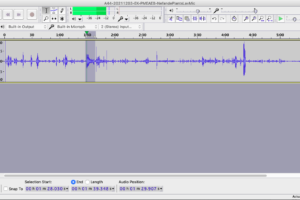
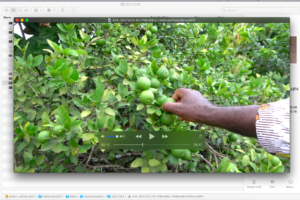
11:30-13:00
I take a break and do a yoga workout in my room. Afterwards, I shower, change into fresh clothes, and cook a quick lunch of an omelette, topping up my drinking water from the pot I boiled in the morning.
13:00-13:30
I start going over my checklist of research topics, making a list of questions to ask in today’s session. Then I transfer some stimuli I prepared earlier this week from a Word document to a memory stick.
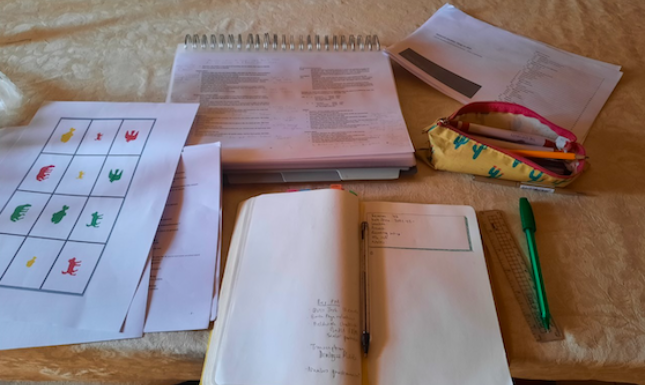
13:30-14:45
I put suncream on and head out into the town centre. First I go to the post office to post some letters to friends and family so that they make tomorrow’s post pick-up for Yaoundé. Then I go to the cybercafé next door to greet the owners and print off the stimuli from my memory stick. On the way home I top up my phone credit and greet a few more people I know in town.
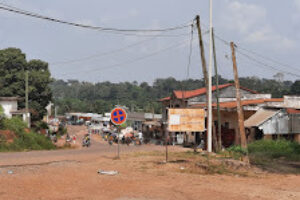
14:45-15:30
Back at the house, I set up my recording equipment ready for today’s session. I decide to work outside and bring out a table, chair, and extension cable, prepare the audio recorder, and mount the camera to the tripod. Then I work through my stimuli list and fieldnotes some more while I wait for my consultant PM to arrive.
15:30-16:00
PM is later than usual so I take a break and try to reach him by phone. A while later he arrives and explains that his motorcycle had run out of fuel so he had to go buy more. He’s tired from the extra journey so we chat for a while and then I do some admin on my laptop while he answers some messages and relaxes.
16:00-17:00
We start the recording session. We begin with one of the tasks I printed out at the cybercafé, which is a set of animal pictures that PM describes in Tunen. They vary in size and colour, so the task shows contrastive nouns and adjectives as well as spatial relations. After that, we work through the questions I prepared from my stimuli list.
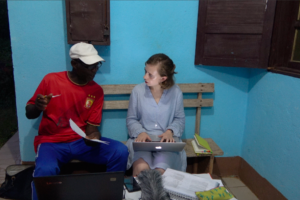
17:00-18:30
After an hour of elicitation work, we turn to the transcription of a dialogue I recorded two weeks ago. I had given the audio files to PM to work on at home, and we go through his transcription together to check we agree on the notation. Because it’s natural speech there are lots of false starts and interruptions. Aside from one tonal notation, there are no problems, so we move to translating the Tunen into French. The dialogue is about how men and women are preparing for the end-of-the-year celebrations, and PM provides useful context about how some crops like cacao didn’t perform as well this year, which means those farmers - typically men - are less able to contribute.
18:30-20:30
The sun has set by the time we finish the translation and I’m regretting not putting on insect repellent. I pack up all the equipment and then head to the neighbours’ for dinner (boiled plantains in a sauce with palm oil and onions). This weekend, a wedding will take place in their family so I try on two outfits they’re tailoring for me. We chat some more about the preparations.
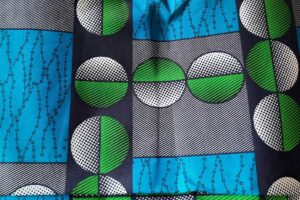
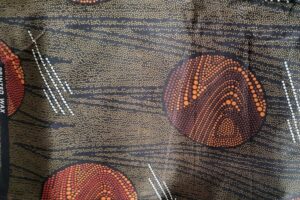
20:30-21:30
I head back to the house and do a quick back-up of today’s fieldwork files (I’ll go over them more thoroughly tomorrow morning). It takes a while to copy over the video files, so I message some friends while I wait.
21:30-00:00
After typing some quick notes for this blogpost, I stop working for the day. I unwind by WhatsApping my partner and reading a book on my Kindle, and then head to bed.


